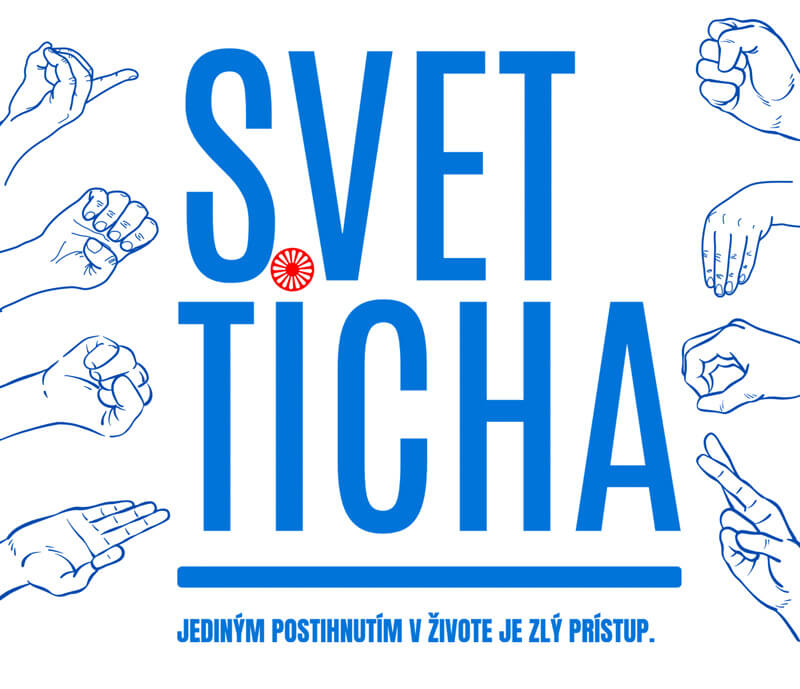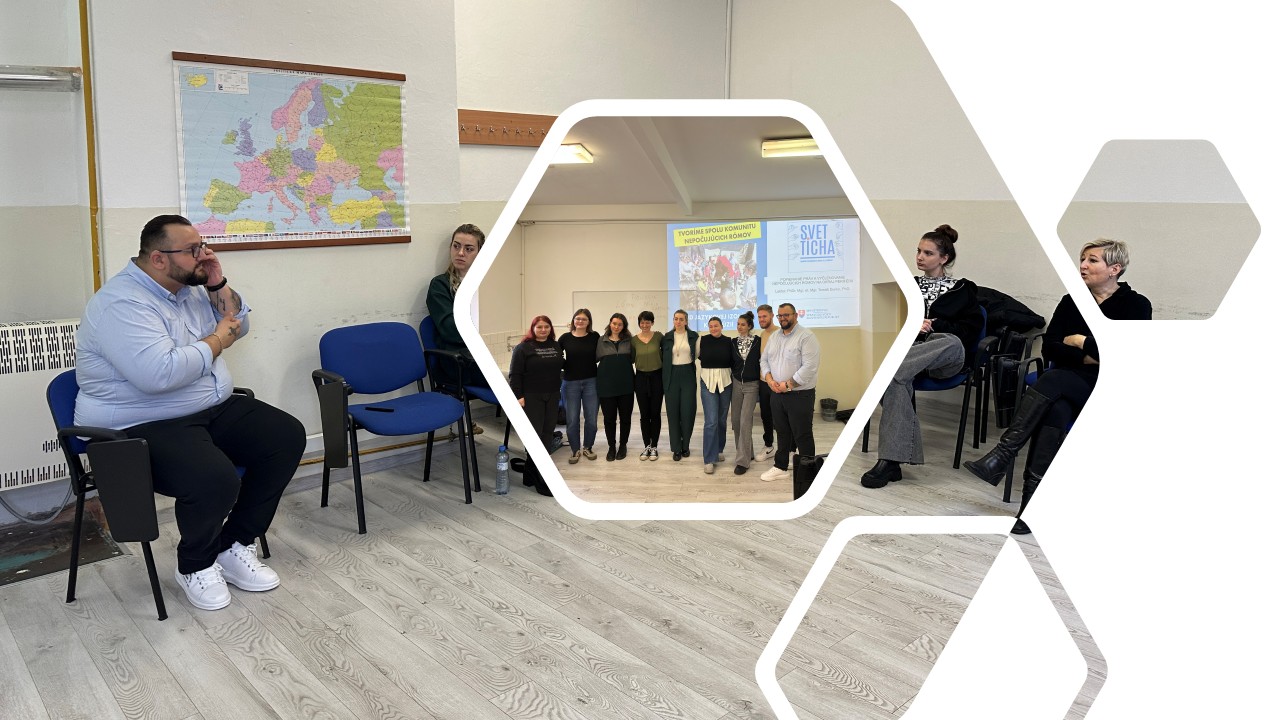On February 27, 2025, we gave a lecture at the University of Trnava for students of the Slovak Language in Deaf Communication department. The main topic was denial of rights and marginalization of deaf Roma people, focusing on the linguistic, educational and social aspects of this issue.
Invisible in society and in statistics
Deaf Roma people are a marginalized group within a marginalized community. Their specific needs are often overlooked not only in Roma communities, but also within state policies. Educational institutions, social services and the healthcare system do not have sufficient mechanisms to support them, and therefore they often find themselves beyond the reach of any inclusive measures.
Key issues they face
- Lack of language skills – a large proportion of deaf Roma do not speak Slovak Sign Language, Slovak or the written form of Romani. As a result, they have limited access to information, education and employment.
- Segregation in the school system – although there are special schools for the deaf, many Roma children never attend them due to lack of awareness on the part of their parents or financial and transport barriers. If they do attend, they are often placed in special classes for children with intellectual disabilities, even though their only “disadvantage” is their hearing impairment.
- Low employment and economic dependence – unemployment among deaf Roma is almost absolute. Without education and communication with their surroundings, they remain dependent on social benefits, family or the informal economy.
- Absence of interpreters and support services – in Roma communities there are almost no qualified Slovak Sign Language interpreters who would mediate communication between the deaf and authorities, doctors or employers. This barrier practically excludes them from any active participation in society.
The path to solutions: Inclusive education and community support
A lecture at the University of Trnava opened a discussion on how to effectively address these challenges. Students – future experts in the field of deaf communication – can play a key role in developing new inclusion strategies.
- Bilingual education (Slovak Sign Language + Romani language/Slovak) as a standard model for deaf Roma children.
- A larger number of Slovak Sign Language interpreters with knowledge of Romani culture and language.
- Support for community initiatives aimed at integrating the deaf into social and working life.
The topic of deaf Roma is still on the margins of public discourse, but it is the academic sphere and the young generation of experts who can help transform the invisible community into full-fledged members of society with secured rights and dignity.






